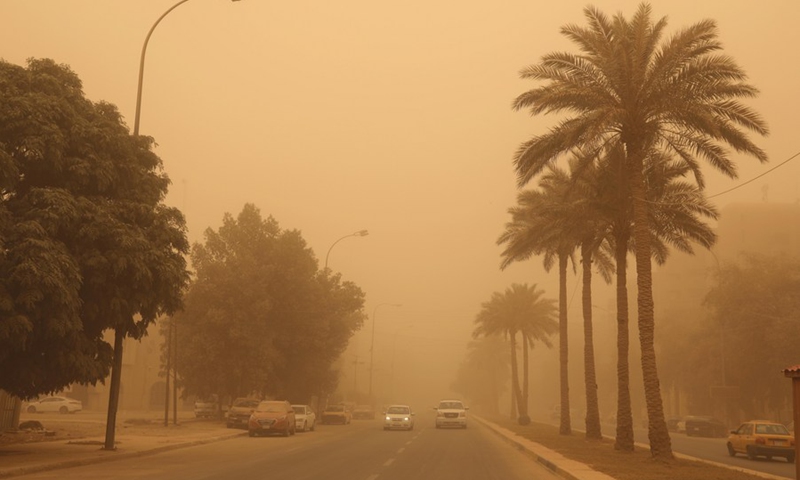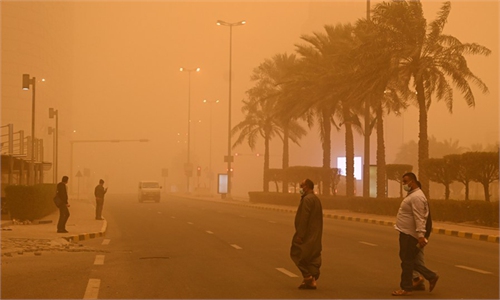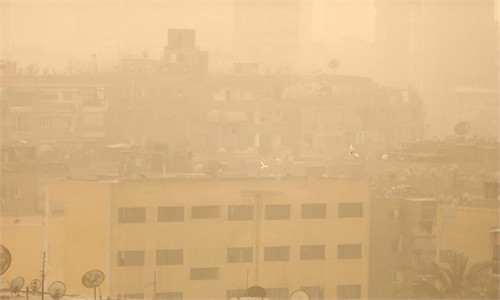Iraq sandstorm grounds flights
1,000 sent to hospitals as air quality drops considerably

A dust storm hits Baghdad, Iraq, on May 16, 2022. A dust storm swept across much of Iraq on Monday, sending more than 2,000 people to hospitals with respiratory problems and forcing the closure of airports, schools and some government offices.(Photo: Xinhua)
Iraq closed public buildings and temporarily shut airports Monday as another sandstorm - the ninth since mid-April - hit the country.More than 1,000 people were hospitalized across the nation with respiratory problems, health ministry spokesperson Seif al-Badr told AFP.
Flights were also grounded in neighboring Kuwait for a second time in May, as the region grapples with the increasingly frequent weather phenomenon.
Later the same day, the second heavy sandstorm in less than a week descended on Saudi Arabia's capital Riyadh, obscuring iconic buildings like the Kingdom Centre in a gray haze.
The Iraqi capital Baghdad was enveloped in a giant dust cloud that left usually traffic-choked streets largely deserted and bathed in an eerie orange light, AFP correspondents said.
South of the capital, near the Shiite shrine city of Najaf, shepherds found themselves shrouded in sheets of ochre-colored dust.
Iraqi Prime Minister Mustafa al-Kadhemi ordered all work to cease in state-run institutions, except for health and security services, citing "poor climatic conditions and the arrival of violent sandstorms."
Air traffic was suspended at the international airports in Baghdad, Arbil and Najaf, before flights resumed in the capital and Arbil.
Later on Monday evening, Arbil's airport closed again "due to thick dust," according to the state news agency INA.
Iraq is ranked as one of the world's five most vulnerable nations to climate change and desertification.
The environment ministry has warned that over the next two decades Iraq could endure an average of 272 days of sandstorms per year, rising to above 300 by 2050.
"These dust storms usually come in the summer, but not at the same rate as recently," Seif al-Hamza, a doctor at a Baghdad hospital, said in a statement, adding that cases of respiratory problems "have increased significantly compared to previous seasons."
Iraq's previous two sandstorms sent nearly 10,000 people to hospital with respiratory problems and killed one person.
The Middle East has always been battered by sandstorms, but they have become more frequent and intense in recent years.
The trend is associated with rising temperatures and water scarcity, the overuse and damming of rivers, as well as overgrazing and deforestation.
Oil-rich Iraq is known in Arabic as the land of the two rivers, the Tigris and Euphrates, where the ancient civilizations of Mesopotamia flourished.
AFP



